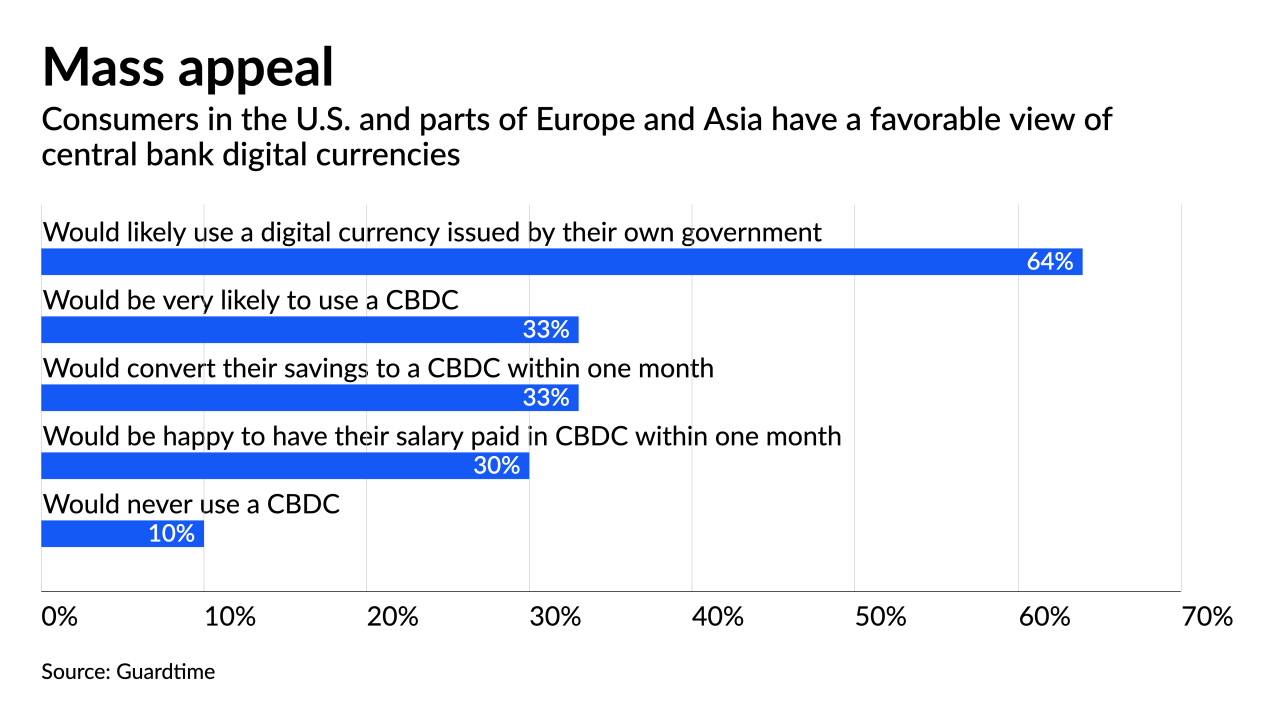-
Western central banks trying to develop sovereign cryptocurrency models face pushback from lawmakers and other obstacles, while the digital yuan has a much clearer path.
July 27 -
The Reserve Bank of India says the card brand failed to comply with a requirement to store transaction details locally. The handling of payment information has become a point of contention between the Asian nation and American firms.
July 15 -
The Australian bank's stakes in technology firms Little Birdie and Amber add price shopping for point of sale credit and bill pay.
May 27 -
Japan is one of the most cash-centric of all developed nations, with about 80% of consumer transactions conducted with paper or coins, but the pandemic triggered some shifts that Adyen wants to capitalize upon.
May 19 -
Government digital currency projects have the potential to displace banks and fintechs from the payment process. But three major participants — Accenture, Ant Group and Swift — argue that incumbents have a role to play.
May 13 -
The bank's blockchain venture with Temasek and DBS, called Partior, creates a wholesale blockchain network.
April 28 -
The Federal Reserve and other central banks deciding whether to compete with private cryptocurrencies should heed the financial stability risks, such as expanding the economic power of governments and altering longstanding payments models.
April 26
-
The card brand has built a sizable business after receiving approval to operate in China eight months ago.
April 23 -
The Federal Reserve and other central banks deciding whether to compete with private cryptocurrencies should heed the financial stability risks, such as expanding the economic power of governments and altering longstanding payments models.
April 21
-
Private businesses are beginning to embrace the Reserve Bank of India's plan to create competition in the country's retail digital payment space, seeking new licenses to develop alternatives to the state-owned National Payments Corp. of India system.
April 19






